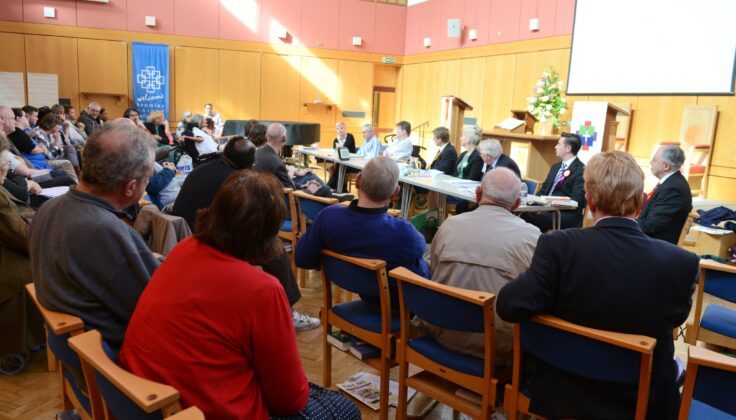Marginal Seats and Why Small Parties Matter – Don’t Count them Out
Marginal seats, where the election outcome remains uncertain, offer a strategic opportunity for Deaf and Disabled People’s Organisations

Why do marginal seats matter?
Marginal seats, where the election outcome remains uncertain and are often won by a few votes, offer a great opportunity for Deaf and Disabled People’s Organisations (DDPOs) to amplify our voices and secure commitments from candidates on critical issues outlined in The Disabled People’s Manifesto.
DDPOs can make the most of the increased attention and political activity in marginal seats by focusing on these contested constituencies. This heightened visibility allows DDPOs to highlight the challenges faced by Disabled people and gives us an opportunity to talk about our rights and our demands.
Key Marginal Seats in the Upcoming UK General Election
This list highlights the most marginal and closely contested seats in the upcoming UK general election, showcasing the dynamic political landscape across regions.
Scotland and Nationwide Marginals
- North East Fife, Scotland: SNP holds by two votes.
- Kensington, West London: Labour’s slim lead of 20 votes.
- Perth and North Perthshire: SNP ahead by 21 votes.
- Newcastle-under-Lyme, Staffordshire: Labour’s narrow margin of 30 votes.
- Southampton Itchen: Conservative majority of 31.
- Crewe and Nantwich: Labour is leading by a tight 48 votes.
- Westmorland and Lonsdale: A 0.8% swing could shift it to Conservatives from Liberal Democrats.
- Bolton West / Pendle: Conservative seats are vulnerable to small swings (0.9% and 1.4%).
- Bury South: Conservatives need a 5.9% swing to win.
- Cheadle and Hazel Grove: Liberal Democrats chasing with required swings of 4.2% and 6.3%.
- Wrexham: Labour defends a majority of 1,832, vulnerable to a 2.7% Conservative swing.
- Vale of Clywd and Gower: Labour seats at risk with Conservative swings of 3.1% and 3.6%.
- Aberconwy: Labour could snatch from Conservatives with a 1% swing.
- Brecon & Radnorshire: A seat the Liberal Democrats aim to retain.
- Montgomeryshire: Lib Dems eyeing with a needed 13.3% swing from Conservatives.
- Plaid Cymru’s Key Seats: Arfon, Ceredigion, Dwyfor Meirionnydd, and Carmarthen East & Dinefwr.
- East Dunbartonshire and Stirling: Battlegrounds for Liberal Democrats and Conservatives.
- Kirkcaldy and Cowdenbeath: Labour upholds Gordon Brown’s former stronghold.
- Gordon: Scene of Conservative Colin Clark’s victory over ex-SNP leader Alex Salmond in 2017.
- Lanark and Hamilton East: A hotly contested three-way marginal seat.
London Focus
- Kensington: Labour holds a slender majority of 20 votes.
- Richmond Park: Conservatives lead by just 45 votes.
- Chipping Barnet: Conservative advantage of 353 votes.
- Hendon: Conservative grip with a 1,072-vote majority.
- Carshalton & Wallington: Liberal Democrat majority of 1,369.
- Putney: Currently Independent (formerly Conservative) with a majority of 1,554.
- Finchley and Golders Green: Conservative lead of 1,657 votes.
- Harrow East: Conservative majority stands at 1,757.
- Battersea: Labour ahead by 2,416 votes.
- Chingford & Woodford Green: Conservative margin of 2,438 votes.
- Cities of London and Westminster: Conservative stronghold with a 3,148-vote majority.
- Dagenham and Rainham: Labour maintains a 4,652-vote majority.
- Uxbridge and South Ruislip: Conservative lead of 5,034 votes.